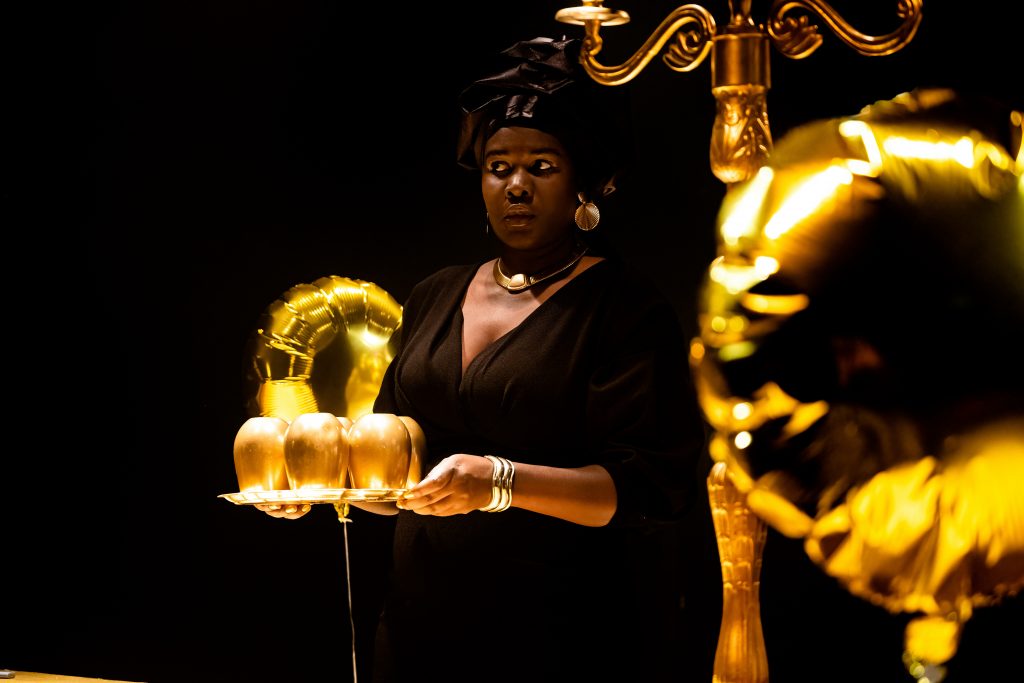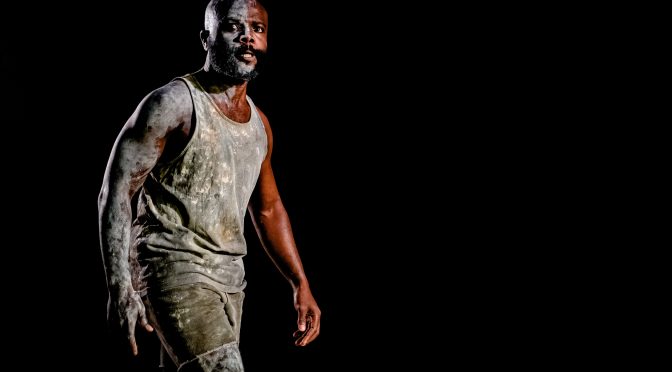Lazarus Theatre Company’s exemplary production of Oscar Wilde’s infamous play benefits from Ricky Dukes’ forceful directorial vision and strong performances from a committed cast.
The production is exemplary in the sense that it suggests how to deal with a difficult text. More like a poem than a play, Salomé is hard work. Even nowadays we can see why Wilde’s morbid, exaggerated language was once thought unhealthy…it’s kind of, well, sickly. The production makes the action as clear and concise as possible. Mostly doing justice to the poetry (with the exception of added expletives) there’s even a sense of humour, which the text itself notably lacks.

Further credit for Dukes comes with efforts to recreate the sense of scandal the play once engendered. Young Salomé’s bargain with her step-father is made explicitly erotic with sexual tension and exploitation equally highlighted. This is achieved in sophisticated fashion thanks in part to the casting of Herod and his wife (Jamie O’Neill and Pauline Babula) who give subtle performances suggesting the power play between them as well as their characters’ individual lust for sex or power.
Games play a big part. The famous dance becomes a creepy parody of childhood fun – a brilliant move – with tag and hide-and-seek making it queasy to watch. Desire is consistently identified as dangerous – creating tension and getting to the heart of Wilde’s obsessions.

Further provocation comes with the casting of the leads, surely deliberately removed from the ‘blind’ casting we usually applaud. There’s a charge – and a challenge – from having a Prince Salome and a Jokanaan, explicitly praised for the whiteness of his skin, performed by a black man. The expectations of the audience (and author) are questioned. That said, what really gives the production power are the detailed and skilled performances. In the title role, Fred Thomas mixes arrogance and fear with desperation, managing to make this murderer surprisingly sympathetic.
Riveting as Thomas is, especially in the harrowing finale, eyes should really be on Prince Plockey who takes the part of the Baptist. Plockey brings a power to the prophet that makes you understand why he is feared. A continual stately procession around the table that is Sorcha Corcoran’s clever set design mounts in power. The focus Plockey brings to this pacing is fantastic and each announcement from the doomed figure creates a sense of dread fitting to the text’s doom-laden tone. Salomé is Jokanaan and Plockey’s show which, despite the title, is exactly as it should be.
Until 11 September 2021
Photos by Adam Trigg

